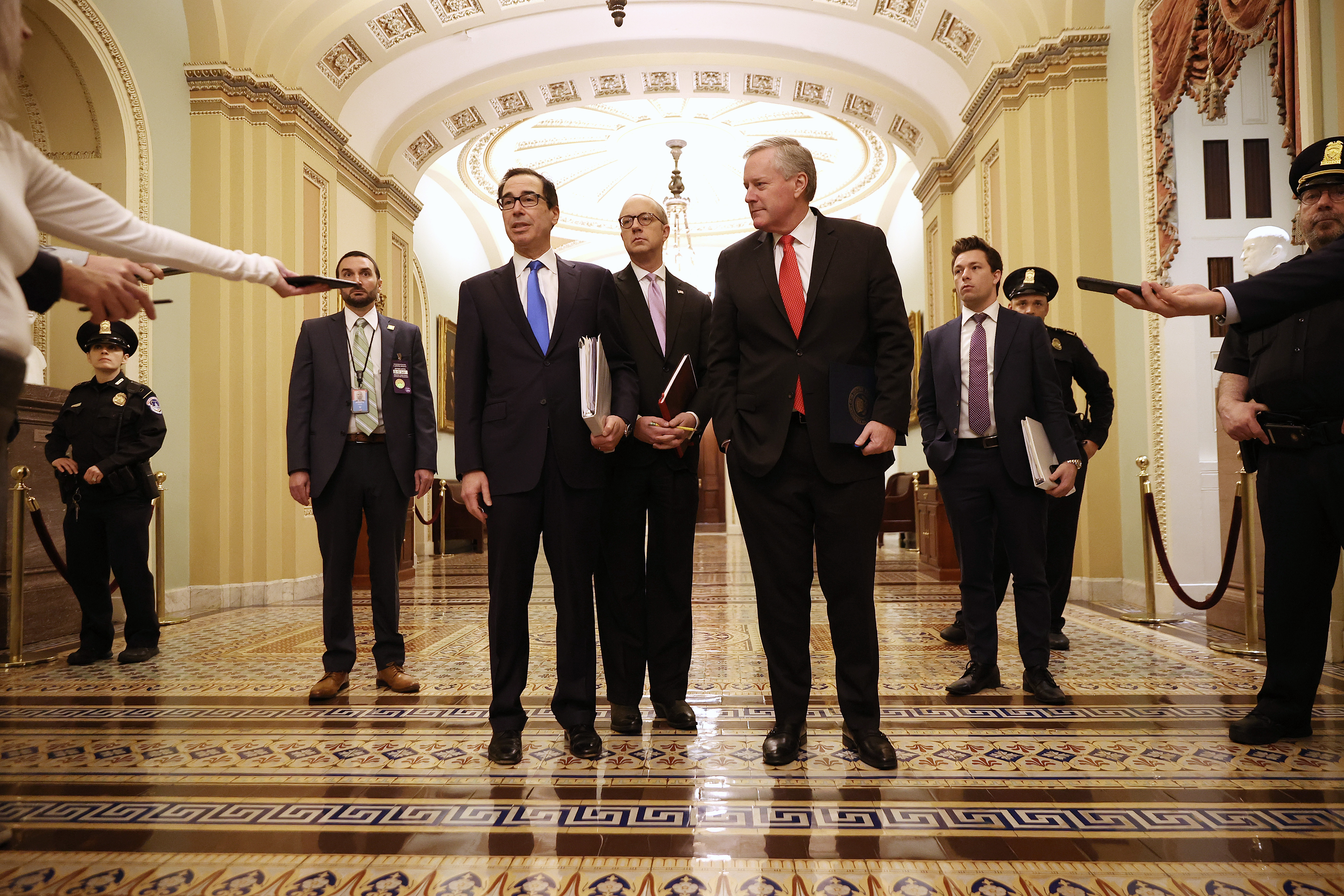Trade of the Day: Risk assets rally across the board after Fed’s unlimited QE; US Treasuries dip marginally
Quote of the Day: “If you want an indication of just how bad things can get you can look at China. The most recent data was negative. We have seen double-digit declines in the high frequency indicators and that was a result of the shutdowns to control the virus rather than the virus itself. China and much of Asia are further through this virus pathway. The US and Europe are only now beginning to enact these quarantines. So, you can expect a similar hit, perhaps even greater, in those regions as time progresses,” said Craig Botham, senior emerging markets economist at Schroders.
Stock of the day: Shandong Gold Mining Co. rose as much as 15.9% after the Fed’s unlimited QE triggered a gold rush on the back of the liquidity the programme is expected to unleash.
Number of the Day: 31.4 – The March IHS Markit flash composite purchasing managers’ index for the eurozone. It has plunged from 51.6 in the previous month in a sign the region is on the cusp of a deep recession, analysts say.
Tip of the Day: “We maintain benchmark weight in equities, credit, government bonds and cash, but have updated our granular asset allocation views for the next six- to 12-months. We emphasize geographies with the most policy space – such as the U.S. and China in both equities and credit, and favor quality exposures. We upgrade U.S. equities because of their quality bias and expected support from fiscal stimulus. We downgrade Japanese equities because of the limited monetary and fiscal policy space to offset the outbreak’s impact,” BlackRock analysts in a weekly note issued on Tuesday.
Financial markets are rallying hard after the US Federal Reserve announced new measures, implying unlimited quantity easing, to support the flow of credit to households and businesses. The risk-on environment is being questioned by many analysts who say the level of uncertainty was too high to start taking positions in the market.
“Overall, it appears that governments are able and, in some cases, willing to do whatever it takes to try and lessen the impact from what will undoubtedly be a severe economic shock. What we don’t know at this stage is how long it will take to contain the virus that is still spreading exponentially, and what kind of damage that will do to both populations and economies across the globe,” said Andy Scott, Associate Director at Chatham Financial.
S&P futures jumped 5.1%, Nasdaq futures are up 5.34% and Dow Jones Futures are up 5.03% with the Stoxx Europe 600 index 4.6% higher.
Gold, a safe haven, also rallied along with risk assets riding the liquidity wall. It is now up 2.8% to 1,597 an ounce.
“The rebound in gold during the day, despite the absence of a deal agreed in Senate, confirms that market participants finally feel like the Fed is getting ahead of the demand for liquidity,” said BCA Research analysts in a note.
“This is important as it raises the likelihood that risk assets will rebound durably once US fiscal authorities finally pass their spending package of around $2 trillion,” they said while adding thy do not expect the Democrats’ opposition to last long as they do not want to be painted as obstructionists in a time of crisis when the election comes in November.
Earlier in the day, Japan’s Nikkei 225 surged 7.13%, Australian S&P ASX 200 leapt 4.13%, Korea’s KOSPI surged 8.6% and Hang Seng index climbed 4.46% riding on the strength of telecoms, consumer and basic materials sectors. Regionally, the MSCI Asia Pacific ex-Japan index rose 4.68%.
“We think these strong measures address many of the shortfalls from previous policy actions,” said DBS economists in a note. “While the virus counts are still accelerating in parts of Europe and the US, we could well be past peak fear (peak volatility) in the financial markets.”
The central bank measures come as the fast spreading coronavirus pandemic has claimed 16,508 lives and infected nearly 380,000 people globally, and is pushing the global economy to a widely expected recession.
“By expanding open-ended asset purchases and providing credit directly to corporates for the first time ever, the US central bank has, again, compensated for the inaction of Congress,” said a note from Capital Economics referring to the failed US Senate coronavirus stimulus bill. The Democrats have criticized the bill saying it’s a bailout for big businesses and House Speaker Nancy Pelosi introduced a bill after the party drafted its own counterproposal titled the Take Responsibility for Workers and Families Act. She criticized the Republican bill for putting “corporations first, not workers and families.”
Meanwhile, the world’s second biggest economy said it aims to be the world economy’s stabilizing force. Chen Yulu, a vice governor at the People’s Bank of China, said China’s economy is making “a major contribution to the global financial stability” and that it would “actively participate in the international coordination of macroeconomic policies.” Indeed, China chose not to cut interest rates last week in a surprise move as it had more effective monetary policy tools for boosting credit.
























